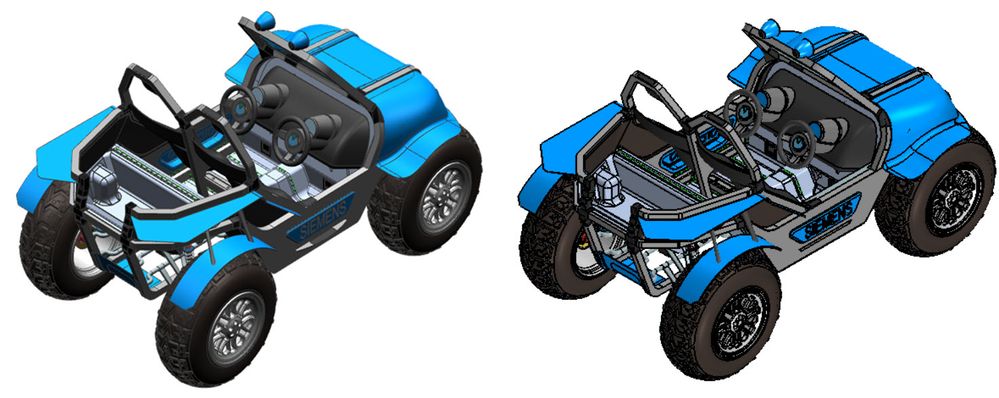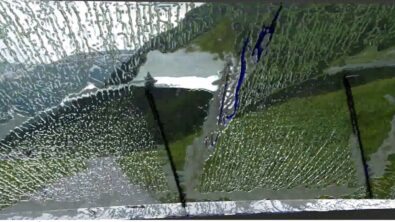Simcenter STAR-CCM+ 2019.1: Handling complex assemblies just got easier

In 1943, French aviator and author Antoine de Saint-Exupery coined a phrase that could very well describe the state of our relationship with technology today: “What is most essential is invisible to the eye.” Some of the most important technology today tends to be that which runs most quietly in the background. When it’s doing its jobs correctly, you don’t even know it’s there.
As engineers get accustomed to living in smart homes, driving smart cars, and living on a smart grid all of which require very little manual input from the users, it can be challenging – to say the least – to sit down at work and spend hours interacting with a complex model clicking endlessly through a simulation tree, and having to do it all again, all by hand, if there are any upstream design changes.
If simple household gadgets like thermostats and vacuums can learn and apply logic from past actions with minimal user input, we should expect no less from our CAE tools, right?
Today I would like to highlight two new, exciting features in the release of Simcenter STAR-CCM+ 2019.1: Simulation Tree Search and 3D-CAD Color Management – and how they quietly but intelligently transform the way we handle complex assemblies.
As you might already know, Simcenter STAR-CCM+ currently offers a wide range of tools (Comments, Surface Repair Search, Tags, Filter, and Custom Tree) to efficiently handle complex assemblies. What you may not be aware of is the intelligence that is built into these tools and how they significantly improve your productivity when using Simcenter STAR-CCM+ (in the form of query-based selection, dynamic query, replace assembly and meshing operation).
For instance: While organizing the model, you can (and should) “tag” the parts to create a new grouping without altering the original hierarchy that was imported. The tags can be further used as an input in filters or the query-based selection in the mesh operation pipeline. The series of mesh operations can then be pipelined to create a meshing process to produce a valid volume mesh that is able to accommodate any design changes
With just a little bit of manual effort upfront tagging parts, you significantly reduce your workload later when you want to swap out a part or perform a design exploration study, because now you can automatically run and re-run meshing operations in pipeline.
No More Searching for the Needle in the Haystack: Simulation Tree Search
The first new feature I want to highlight from Simcenter STAR-CCM+ 2019.1 is the ability to quickly search a Simulation Tree allowing you to locate objects faster in a large assembly structure. The ‘Search’ command (keyboard shortcut Ctrl+F) allows you to type the text to find, select the item needed from a list of search results, and click ‘Select in Application’ to work on the object directly in the tree. This drastically reduces the time traversing the tree and number of mouse clicks which ultimately improves your productivity. Tree items which can be found are all named objects in the simulation tree (for example: parts, regions) as well as system field functions. But that’s not all! The search engine is based on filters, so you can search using a more elaborate search query which you can then, if needed, save as a filter for later use in your simulation template.
No Longer Color Blind: Color Management in 3D-CAD
Color Management in 3D-CAD is another exciting feature introduced in version 2019.1. CAD data often contains colors that a design engineer has already assigned to better visualize the assembly. So why not leverage the work he/she has already done? Previously, when we imported CAD data into Simcenter STAR-CCM+, that color information was lost. From Simcenter STAR-CCM+ 2019.1 onwards, colors that are assigned to a CAD package will be imported into 3D-CAD by default. This enhancement is applicable to both neutral and native CAD formats.
Closing this gap will allow you to gain a greater understanding of the geometry from the moment that CAD data is imported into 3D-CAD. You are also not limited to using the imported colors with the ability to assign your personal colors of preference for your data management.
 Figure 1: NX on the left and 3D-CAD on the rightWhy should you care? What’s the benefit? Well, aside from the fact that it looks cool, there are many advantages to both you and the entire product development team at every stage of the process:
Figure 1: NX on the left and 3D-CAD on the rightWhy should you care? What’s the benefit? Well, aside from the fact that it looks cool, there are many advantages to both you and the entire product development team at every stage of the process:
- Visualizes data: Foster greater understanding of your CAD model with coloration now consistent with source.
- Facilitates collaboration: The communication between the designer and simulation engineer is made easier as they both see the same model on each end.
- Organizes data by color: Grouping faces by color is easier and there is always visual feedback to the user.
Conclusion
These updates are a part of a streamlined but ultimately more powerful and efficient approach to handling complex assemblies. To become instantly more productive, please download Simcenter STAR-CCM+ 2019.1 when released later this month.



Comments
Comments are closed.